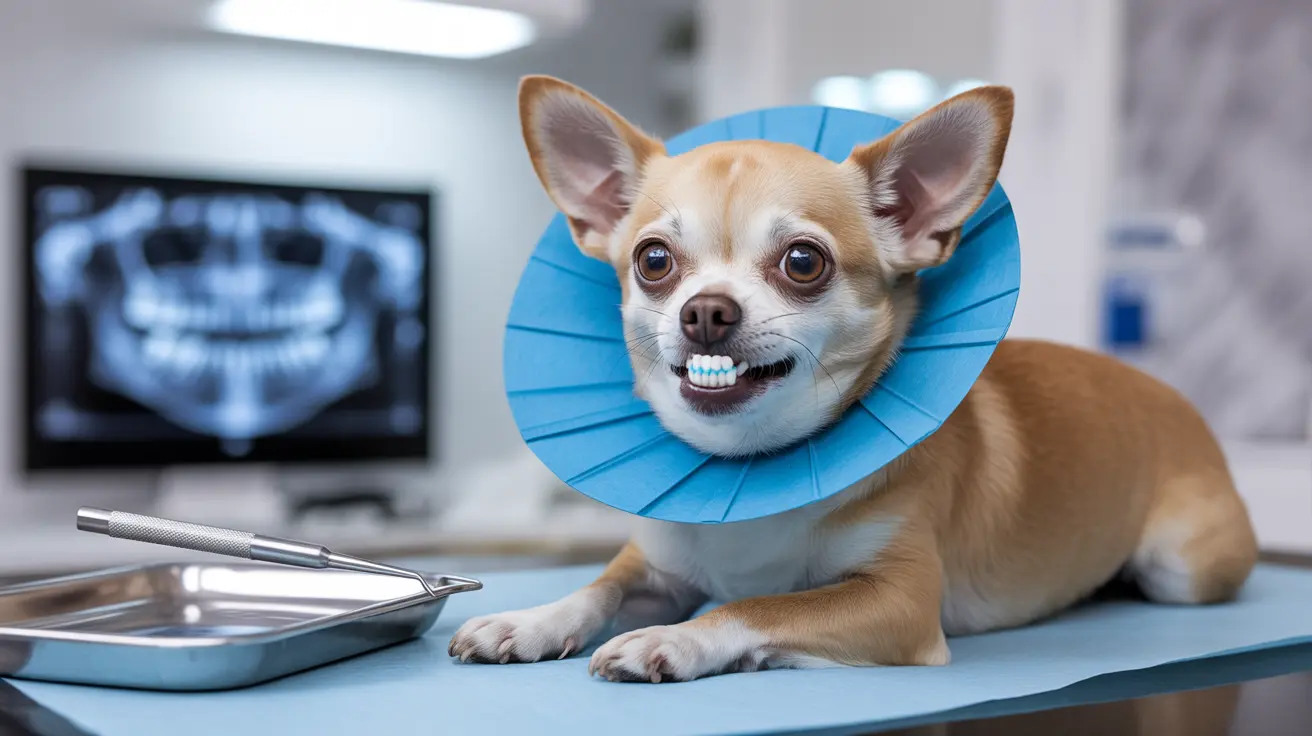Understanding Dog Dental Fillings and Their Cost
Dog tooth fillings typically cost between $150 to $400 per tooth, though prices can vary significantly based on location and complexity. This base price usually doesn't include necessary accompanying procedures like anesthesia, X-rays, or pre-treatment examinations.
The total cost for a dental filling procedure often includes:
- Initial consultation: $85-100
- Dental X-rays: $150-330
- Anesthesia: $100-300
- The filling procedure: $150-400
- Post-procedure medications: $50-100
Factors Affecting Dog Dental Treatment Costs
Geographic Location
Veterinary costs vary significantly by region, with urban areas and coastal cities typically charging more than rural locations. A dental filling in New York City might cost twice as much as the same procedure in a small Midwestern town.
Veterinary Expertise
Board-certified veterinary dentists usually charge more than general practitioners but bring specialized expertise to complex dental procedures. Their advanced training often results in better outcomes, especially for complicated cases.
Type of Procedure
The specific treatment needed affects the final cost:
- Simple fillings: $150-400
- Complex restorative work: $600-1,500
- Root canals: $1,500-3,000
- Multiple tooth treatments: $2,000-5,000
Preventive Care and Cost Savings
Investing in preventive care can significantly reduce long-term dental expenses. Regular dental cleanings, while costing $300-700, can prevent more expensive procedures later. Professional cleanings under anesthesia are recommended annually for most dogs.
Essential preventive measures include:
- Daily tooth brushing with dog-specific toothpaste
- Regular use of veterinary-approved dental chews
- Annual professional dental cleanings
- Immediate attention to any signs of dental problems
Insurance Coverage for Dog Dental Procedures
Pet insurance coverage for dental procedures varies widely between providers. Some plans cover accidental dental injuries but not disease-related issues. Others offer comprehensive dental coverage including fillings, extractions, and root canals, typically reimbursing 70-90% of costs after meeting the deductible.
Frequently Asked Questions
How much does a dog tooth filling typically cost, and what factors influence the price?
A dog tooth filling typically costs between $150-400 per tooth, not including associated costs like anesthesia and X-rays. Factors influencing the price include geographic location, veterinary expertise, complexity of the procedure, and additional required treatments.
What is the difference in cost between dog tooth fillings, extractions, and root canals?
Simple tooth fillings ($150-400) are generally less expensive than extractions ($10-500 depending on complexity) and root canals ($1,500-3,000). Complex dental procedures requiring specialized expertise can range from $600-5,000.
Does pet insurance cover dog tooth fillings and other dental procedures?
Many pet insurance plans cover dental procedures, but coverage varies significantly. Some plans cover only accidental dental injuries, while others include disease-related treatments. Review policy details carefully, as reimbursement rates typically range from 70-90% after deductibles.
Why is general anesthesia required for dog dental treatments like fillings and cleanings?
General anesthesia is necessary because dogs cannot understand or cooperate with dental procedures. It ensures the veterinarian can thoroughly examine and treat the teeth while keeping your pet comfortable and still, reducing stress and allowing for precise work.
How can I prevent costly dental treatments for my dog through at-home care and regular cleanings?
Prevent expensive dental procedures through daily tooth brushing, using veterinary-approved dental chews, scheduling annual professional cleanings, and addressing dental issues promptly. Regular preventive care can significantly reduce the likelihood of needing costly treatments later.
Final Thoughts
While dog tooth fillings and dental procedures can be expensive, they're essential investments in your pet's health and well-being. Understanding these costs helps you plan for dental care expenses and emphasizes the importance of preventive maintenance. Consider pet insurance options and regular dental care to manage these expenses effectively while ensuring your dog maintains good oral health.






